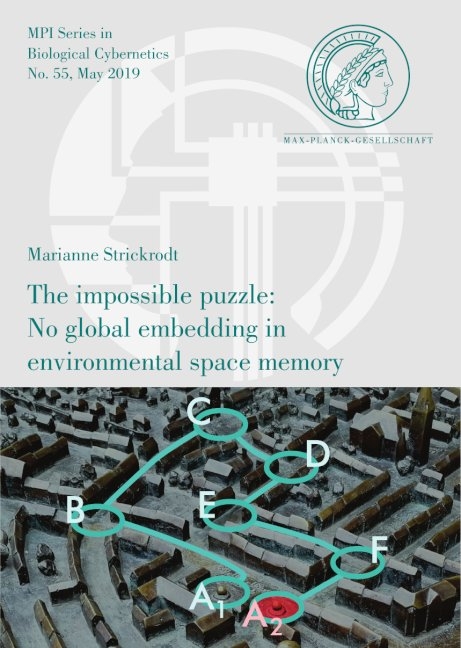
The impossible puzzle: No global embedding in environmental space memory
Logos Berlin (Verlag)
978-3-8325-4925-1 (ISBN)
Marianne Strickrodt studierte Psychologie in Gießen und begab sich für ihre Promotion ins Schwabenland. Am Max-Planck-Institut für biologische Kybernetik in der Universitätsstadt Tübingen setzte sie im Rahmen ihrer Doktorarbeit fort, was schon während ihrer Masterzeit begann: Die Erforschung des menschlichen Raumgedächtnisses. Am Cyberneum des Max-Planck-Institutes, aber auch während Forschungsaufenthalten an der Bournemouth University in Südengland und an der Brown University in Providence, USA, untersuchte sie wie Menschen navigierbare Umgebungen memorisieren. Besonderes Augenmerk legte sie dabei auf eine realitätsnahe und dennoch kontrollierbare Experimentalumgebung. Mithilfe eines komplexen Virtual-Reality und Bewegungstrackingsystem erschuf sie ein wirklichkeitsgetreues Lernerlebnis, bei dem sich Probanden physisch durch eine virtuelle Welt bewegen konnten.
| Erscheinungsdatum | 30.06.2019 |
|---|---|
| Reihe/Serie | MPI Series in Biological Cybernetics ; 55 |
| Sprache | englisch |
| Maße | 210 x 297 mm |
| Einbandart | Paperback |
| Themenwelt | Geisteswissenschaften ► Psychologie ► Test in der Psychologie |
| Schlagworte | Lernen und Gedächtnis • Navigation • Navigierbare Räume • Raumkognition • Überblickswissen |
| ISBN-10 | 3-8325-4925-0 / 3832549250 |
| ISBN-13 | 978-3-8325-4925-1 / 9783832549251 |
| Zustand | Neuware |
| Informationen gemäß Produktsicherheitsverordnung (GPSR) | |
| Haben Sie eine Frage zum Produkt? |
aus dem Bereich


